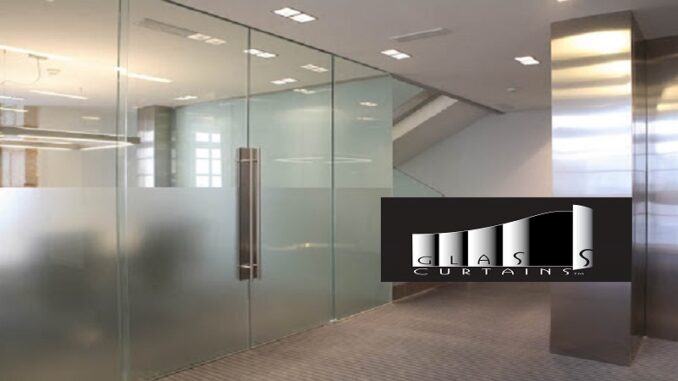
Frameless glass is revolutionizing architectural design by offering a sleek and modern aesthetic that enhances both functionality and beauty. Unlike traditional framed glass structures, page tinbinhduong.top share frameless glass systems rely on structural support through the glass itself, providing an unobstructed view while maximizing natural light. One of the defining characteristics of frameless glass is its minimalistic design, which allows for greater flexibility in space utilization and can be tailored to various architectural styles.
Introduction to Frameless Glass
Frameless glass is not only visually appealing but also functional. It is typically made from tempered or laminated glass, offering superior strength and safety features. Additionally, its ability to withstand harsh weather conditions makes it suitable for a range of applications, including balustrades, shower enclosures, and glass walls. This durability ensures that frameless glass can meet the demands of commercial, residential, and industrial sectors alike, solidifying its place in contemporary architecture.
The trend towards frameless glass has gained significant traction in recent years, as homeowners and businesses alike continue to seek out ways to modernize their spaces. In residential sectors, it is frequently used in outdoor living areas, GlassCurtains allowing seamless transitions between indoor and outdoor environments. Similarly, in commercial applications, frameless glass enhances visibility and accessibility, contributing to a more inviting atmosphere while promoting transparency. Moreover, the industrial sector has also embraced this trend, using frameless glass solutions to create open and airy workspaces.
As the demand for modern, aesthetic, and functional designs increases, frameless glass is positioned as a key element in shaping future architectural landscapes. Its versatility ensures that it can be adapted to meet varying needs across different sectors, setting the stage for its continued utilization in innovative building designs.
The Benefits of Using Frameless Glass
Frameless glass has gained immense popularity in both residential and commercial construction, primarily due to its superior aesthetic appeal. The sleek and modern design offers an unobstructed view, allowing spaces to appear more open and inviting. This feature is particularly beneficial in urban environments where scenic views can be showcased without the distraction of bulky frames. By employing frameless glass, architects create a design that not only enhances the overall aesthetic but also enriches the user experience.
One of the standout advantages of frameless glass is its ability to maximize natural light. Traditional framed glass systems can obstruct light entry; however, frameless options ensure a seamless transition between interior and exterior spaces. This encourages a healthier ambiance and reduces reliance on artificial lighting throughout the day. As a result, this not only contributes to energy savings but also promotes wellbeing by connecting occupants with the outdoors.
Safety is another critical advantage of frameless glass. Modern manufacturing techniques produce tempered and laminated glass, significantly increasing its resistance to shattering. This durability ensures that frameless glass installations, such as balustrades or shower enclosures, can withstand impacts better than traditional framed alternatives. Additionally, the absence of frames minimizes the risk of corrosion or deterioration, making it a long-term investment for many buildings.
Furthermore, frameless glass facilitates versatile applications, enabling architects and builders to integrate it into various design themes. Whether enhancing a minimalist aesthetic or complementing industrial designs, frameless glass harmonizes well with different materials and styles. Overall, frameless glass embodies a contemporary look while providing practical benefits, making it a preferred choice among professionals in the construction and design industries.
Key Features to Look for in a Frameless Glass Supplier
When selecting a frameless glass supplier, Glass Curtain several critical features should be taken into account to ensure that the supplier meets your expectations and requirements. The first aspect to consider is the product range offered by the supplier. A reputable supplier should provide a diverse selection of frameless glass designs, such as shower enclosures, sliding doors, and glass railings. This variety not only allows customers to find products that suit their aesthetics but also caters to different functional needs.
Equally important is the quality of the materials used in the glass products. Suppliers should be able to demonstrate compliance with relevant quality certifications, such as ANSI and ISO standards. These certifications are crucial as they indicate that the glass products have undergone rigorous testing for safety and durability. Customers should inquire about the manufacturing processes and the type of glass used, such as tempered or laminated glass, which offer enhanced resilience against impacts.
In addition to product quality, customer service is a vital factor to consider when evaluating frameless glass suppliers. Suppliers should be responsive, knowledgeable, and willing to assist clients throughout the purchasing process, from initial consultation to post-installation support. A strong customer service approach can significantly enhance the overall purchasing experience.
Read more: Glass living room partition should know
Technical expertise should not be overlooked, as it plays a critical role in the selection and installation of frameless glass products. A supplier with a well-trained team can provide valuable insights into what solutions best fit the specific needs of the customer. Furthermore, comprehensive installation support is essential to ensure that the frameless glass is fitted correctly and safely. Overall, careful consideration of these features will lead to a more satisfying experience when choosing a frameless glass supplier.

Để lại một phản hồi